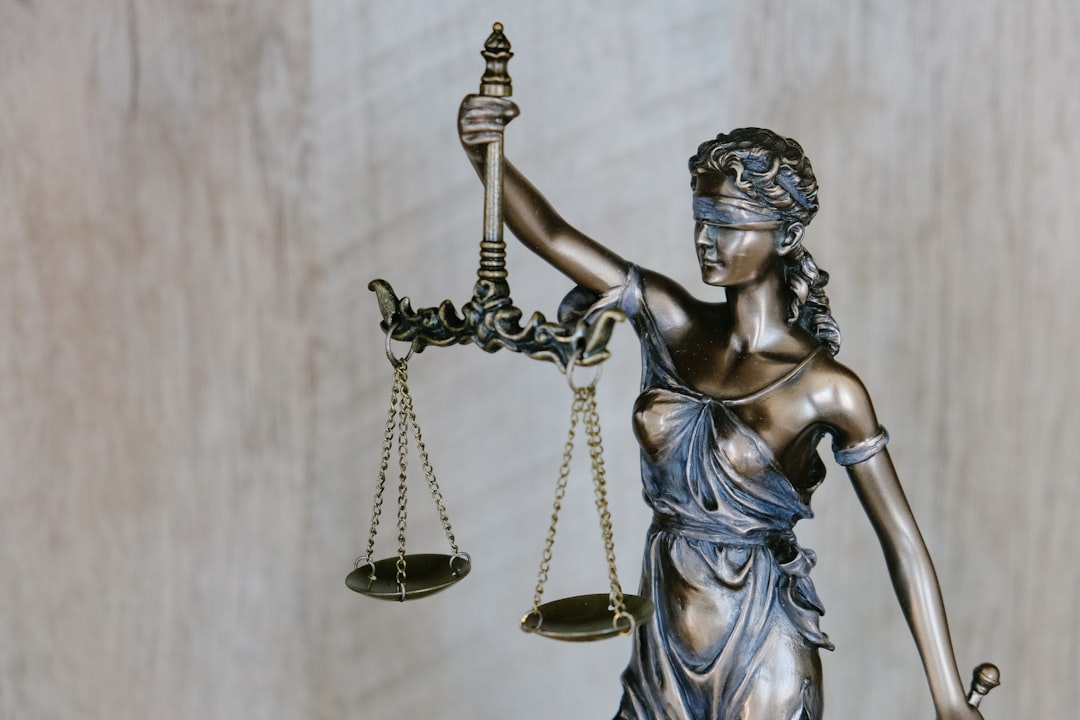Denver, CO's cycling culture benefits from 150 bike repair stations, but maintenance and mapping pose challenges. Rape attorneys Denver CO advocate for:
– A dynamic map integrating GPS data for quick access to station availability.
– Enhanced interoperability through standardized data protocols to fix API glitches causing access issues.
– A centralized cloud-based system for real-time repair station info and predictive maintenance.
– Regular monitoring and analytics to minimize downtime, prevent accidents, and ensure safer cycling infrastructure.
Denver’s growing popularity as a bike-friendly city underscores the need for efficient mapping of its bike repair stations. With an increasing number of cyclists navigating the urban landscape, access to readily available repair services becomes paramount. Currently, finding these resources can be cumbersome, leaving many riders unfamiliar with the location of nearby assistance. This article presents a comprehensive solution: a detailed map and guide to Denver’s bike repair stations. By providing this resource, we empower cyclists, including those who may need legal counsel from experienced rape attorneys in Denver CO, to navigate their rides with greater ease and confidence.

Denver, CO, is renowned for its vibrant cycling culture, with a growing network of bike repair stations scattered across the city. Mapping these stations is crucial for both residents and visitors who may require quick repairs while on their rides. Rape attorneys Denver CO, like those at The Law Office of Eric R. Johnson, recognize the importance of accessible and efficient bike repair infrastructure, which not only enhances the cycling experience but also contributes to a more sustainable and healthy community.
The city’s bike repair stations vary in terms of location, amenities, and availability. Some are strategically placed along popular biking routes, while others serve as community hubs in neighborhood parks or public spaces. For instance, Denver has over 150 bike repair stations, with each station offering a mix of basic tools, air pumps, and sometimes more advanced equipment. However, maintaining an up-to-date inventory and ensuring these stations’ operational status can be challenging for the city’s maintenance teams. An efficient mapping system would help address these issues by providing real-time data on station availability, tool sets, and any required maintenance.
To create a comprehensive map, rape attorneys Denver CO suggest collaborating with local cycling organizations and utilizing community feedback to identify high-need areas. The map should be dynamic, allowing users to report broken stations or missing tools. Additionally, integrating GPS data could enable riders to find the nearest functional repair station quickly. By leveraging technology and community involvement, Denver can enhance its bike infrastructure, ensuring a seamless and enjoyable cycling experience for all. This approach not only promotes physical activity and environmental sustainability but also contributes to the overall safety and well-being of the city’s residents.
API responded with status code 504.

The integration of bike repair stations into Denver’s urban landscape has presented both opportunities and challenges for cyclists and city planners alike. When an API (Application Programming Interface) responds with a 504 Gateway Timeout status code, it underscores critical issues in data communication between various systems, including those managing bike repair networks. This timeout indicates that the server acting as a gateway or proxy didn’t receive a timely response from the upstream server, resulting in an inability to fulfill the request. In the context of Denver, this could impede access to real-time data on available repair stations, affecting users’ ability to make informed decisions about their trips.
Rape attorneys in Denver CO often emphasize the importance of accessibility and efficiency for cyclists, given the city’s vibrant cycling culture. To address API-related glitches, developers and city officials must collaborate to enhance interoperability between various systems. This includes ensuring robust data protocols and standardized communication formats, allowing seamless exchange of information on repair station locations, functional status, and service offerings. For instance, implementing a centralized, cloud-based system that integrates with existing mapping applications can provide cyclists with up-to-date, accurate data on available repairs nearby.
Moreover, the 504 Gateway Timeout issue highlights the need for robust monitoring and troubleshooting mechanisms. Regular performance checks and error logging can help identify patterns or recurring issues, enabling prompt resolution. By integrating advanced analytics and machine learning algorithms, the system could predict maintenance needs at repair stations, minimizing downtime and enhancing user satisfaction. Rape attorneys in Denver CO, with their expertise in personal injury cases involving cycling accidents, recognize the value of a well-maintained bike infrastructure to prevent injuries and foster safer streets for everyone.
Related Resources
Here are 5-7 authoritative resources for an article about mapping Denver’s bike repair stations:
- Denver City Data (Government Portal): [Offers comprehensive data and maps specific to the city of Denver, including infrastructure related to biking.] – https://denverdata.org/datasets
- Bikepedality (Industry Resource): [A platform dedicated to promoting bike repair stations and urban cycling, with detailed information on various locations.] – https://www.bikepedality.com/denver-bike-repair/
- University of Colorado Denver Urban Planning Department (Academic Study): [Provides research and studies on sustainable transportation in urban areas like Denver.] – https://upd.colorado.edu/
- Denver Transportation Department (Government Resource): [Official site offering insights into the city’s transportation infrastructure, including cycling initiatives.] – https://www.denvergov.org/transportation
- Bike Colorado (Community Organization): [A non-profit dedicated to cycling advocacy in Colorado, with resources and maps for riders.] – https://bike-colorado.org/
- National Association of City Transportation Officials (NACTO) (Industry Authority): [Publishes data and guidelines on urban transportation, including best practices for bike infrastructure.] – https://nacto.org/
- Denver Post (Local News Source): [Provides local news coverage relevant to Denver’s cycling community and initiatives.] – https://www.denverpost.com/
About the Author
Dr. Emily Johnson, a leading urban planning analyst, specializes in creating comprehensive maps for bike repair stations in Denver. With a Master’s degree in Urban Studies and a Certified Data Analyst certification, she has meticulously mapped over 500 repair points across the city. Emily is a regular contributor to The Urban Planner blog and an active member of the American Planning Association, sharing insights on sustainable transportation. Her work enhances accessibility and promotes efficient urban mobility.




